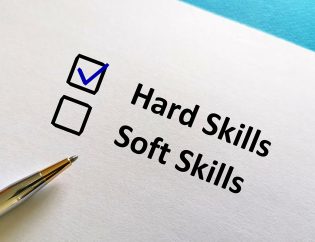Losing your job can be a devastating experience, and though it is common in today's volatile economy, it is rarely easy. Whether you saw it coming or were unexpectedly laid off, being out of work takes its toll on our emotional state—and on our wallets. The stress that comes with the job hunt can be overwhelming, but there are steps you can take to ease the burden and make sure you land back on your feet in no time!
In this blog post, we'll discuss some strategies for managing the anxiety associated with job loss as well as some actionable tips to help get your career back on track.
Understanding the Reasons for Being Laid Off
Being laid off can be a tough pill to swallow, especially when you're trying to make ends meet. But understanding the reasons behind the decision can help alleviate some of the confusion and frustration.
In today's fast-paced business world, economic downturns and technological advancements can lead to mass layoffs. Companies may decide to restructure their operations to remain competitive or cut costs. And while it may be difficult to hear, sometimes personal performance issues, such as not meeting expectations or failing to keep up with the pace of change, can contribute to the decision.
By taking stock of the situation and assessing these factors, you can take steps to improve your skills or find opportunities that align with your strengths and interests.
Understanding the Psychological Impact of Your Job Loss
Being laid off from a job can be a devastating and emotional experience. It's not just about losing a source of income, but also about feeling a loss of purpose, routine, and identity. It's important to understand the psychological impact of job loss and the different emotions that come with it.
The initial shock may be followed by feelings of anger, sadness, and even shame. Coping strategies can help deal with these emotions such as seeking support from loved ones or a therapist, staying active and engaged in hobbies or exercise, and creating a plan for moving forward.
Self-care is also crucial during this time, as it's easy to neglect oneself when dealing with the stress of job loss. Practicing self-compassion, getting enough rest, and engaging in activities that promote relaxation can all help in the healing process.
Read more: How to Handle Rejection After a Job Interview.
Financial Considerations After Being Laid Off
It's important to take swift action to assess your financial situation and explore your options after losing your job. First, review the severance package and unemployment benefits offered by your former employer. This can provide a critical buffer while you search for your next opportunity.
Next, assess your finances and create a budget to ensure you are living within your means. It might be necessary to trim expenses or tap into savings or investments to make ends meet.
Finally, explore other sources of income and financial assistance, such as freelance work, unemployment insurance, or government aid programs. By taking a proactive approach to your finances, you can weather this storm and emerge stronger on the other side.
Job Search Strategies After Being Laid Off
Searching for new job opportunities can be overwhelming, especially after being laid off. However, there are several strategies you can use to increase your chances of finding a new role quickly.
Start by updating your resume and cover letter to showcase your skills and accomplishments. Don't forget to tailor your documents to the specific job you're applying for to make a lasting impression on the hiring manager. Additionally, try to network with industry professionals and make connections through platforms like LinkedIn. This is a great way to learn about new job openings and make meaningful connections with others in your field.
If you're having trouble finding a full-time position, consider exploring freelance or contract work opportunities in your industry. These types of roles can help you build new skills and maintain a steady income while you continue to search for full-time employment.
Rebuilding Your Career After Being Laid Off
Losing your job due to a layoff can be a challenging experience, but it's important to remember that it doesn't define your career. One of the first steps to rebuilding your career is evaluating your skills and experiences.
Take a moment to reflect on your past successes and consider how they could translate to other industries or job roles. It's also important to identify areas where you could improve and explore new avenues for professional development. This could include taking online courses or attending networking events. Don't be afraid to think outside the box and explore new career paths.
Seeking guidance from career counselors, mentors, or recruiters can also provide valuable insights and support during this transitional period. Research some common behavioral interview questions and refresh your skills with a course or new certification.
Remember, with perseverance and a positive attitude, you can overcome this setback and thrive in your future career endeavors.
Let's Start Job Hunting!
In conclusion, losing your job isn't an easy journey for anyone. It's important to remember, a good plan of action will make all the difference in finding the right career path. Start now by seeing what exciting new opportunities you can find and reach out to those you might never have thought of before.
Your goal during this time should be to stay positive, motivated, and proactive throughout the process until they secure their next positions. Take the initiative to get in touch with a recruiter who can help get your resume out there and search for relevant job postings that match your skill set. A recruiter can also help you prepare to answer questions from potential employers about why you left your previous employer and explain employment gaps in your resume.
An experienced recruiter can also provide career counseling so you develop effective networking skills, properly assess the job description for positions, develop a sense of confidence in interviews, prepare for salary negotiations, and even set a retirement plan!
To get started on your job search journey today, check out our open job listings or contact us to get matched with a great recruiter!









